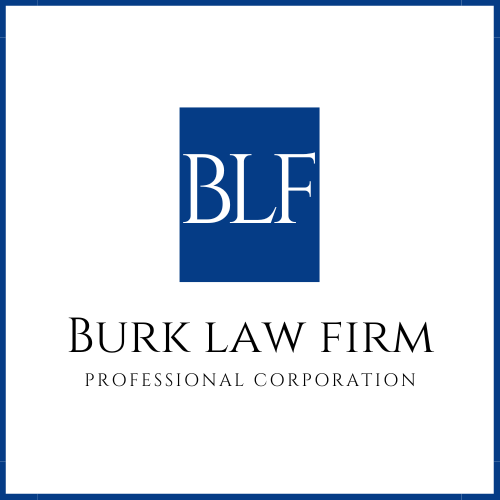Business Law and Commercial Litigation in Austin, TX
Since 1992 individuals and business owners have relied on our legal expertise and commitment to excellence at the Burk Law Firm, P.C. to provide representation, guidance, and solutions for their legal needs.
We handle Plaintiffs’ Civil and Commercial Litigation and Commercial Arbitration, including Claims for Fraud (Statutory Fraud and Common Law Fraud), Whistleblower and Qui Tam (Fraud Against the Government) Lawsuits, Breach of Contract, Breach of Fiduciary Duty, LLC Member Disputes, Corporate Shareholder Disputes, Business Breakups, Business Divorces, Doctor Practice Breakups, Lawyer Practice Breakups, Securities Fraud, Churning and Inappropriate Investments by Financial Advisors, Complex and Multi-Party Litigation, Pre-lawsuit Case Evaluation, Mishandled Lawsuit Trial Counsel Replacement, Serious Personal Injury, etc.
We provide representation for a broad range of Business Law needs, including, Entity Formations, LLC Company (Operating) Agreements, Corporation Bylaws, Shareholder Agreements, Startup Counseling, Executive and Employee Stock Options, Negotiations, Commercial Real Estate transactions, and ongoing representation and strategies.

About Michael Burk
Michael Burk, the founding partner of our business law firm, believes a business lawyer should approach any case from a strategic standpoint, employing a highly-efficient approach to gathering evidence. Our litigation attorneys creatively strategize the most valuable solutions for clients.
Businesses experience many challenges that may require legal advice and action. From antitrust disputes to Whistleblower lawsuits, we understand the nuances of financial law and the legal system. This expertise informs every decision we make involving your case and helps us claim any funds owed to you. We also take every step possible to protect the future growth and success of your enterprise.
Frequently Asked Questions
What types of business disputes are most common in Austin, TX?
- Breach of Contract
Overview:
This is the most common business dispute in Austin, as in many cities. Contracts are the foundation of business relationships, covering everything from vendor agreements to employment terms.
Typical Situations in Austin:
- Tech startups may allege breaches involving IP licensing, software development timelines, or failed deliverables.
- Construction and real estate firms often clash over contractor performance or payment milestones.
- Event and entertainment businesses, common in Austin’s music scene, may face disputes over venue bookings, artist agreements, and service contracts.
Resolution:
These are usually resolved through negotiation, mediation, or litigation. Given Austin’s emphasis on innovation, arbitration clauses are also increasingly common in contracts.
- Partnership and Shareholder Disagreements
Overview:
Disputes between co-founders or business partners over the direction, control, or profit distribution of a company.
Typical Situations in Austin:
- Startup founders may argue over equity splits, buyout terms, or strategic direction as their companies scale.
- Family-owned businesses and small partnerships often face succession disputes or disagreements over financial contributions.
- Private investors or angel funders may have conflicts over rights, exits, or dilution of shares.
Resolution:
Litigation under Texas partnership laws or derivative shareholder actions. Many cases are avoided with robust operating agreements, but informal startup cultures sometimes lead to handshake deals that later unravel.
- Real Estate and Land Use Conflicts
Overview:
With Austin’s explosive growth, real estate disputes are increasingly prominent, often involving zoning, development rights, and lease agreements.
Typical Situations in Austin:
- Landlords and tenants dispute commercial lease terms, rent increases, or early terminations.
- Developers and municipalities may clash over zoning approvals, environmental restrictions, or use permits.
- Co-owners of property may disagree over sale or management decisions, especially with gentrification and rising values in East and South Austin.
Resolution:
Disputes can be addressed via real estate litigation, or in some cases, through city planning appeals or administrative hearings. Title defects and boundary disputes are also common.
- Employment and Labor Disputes
Overview:
Though Texas is an “at-will” employment state, employers in Austin still face significant challenges regarding wrongful termination claims, wage disputes, and discrimination.
Typical Situations in Austin:
- Tech and service sector employers face issues around classification of contractors vs. employees.
- Bars, restaurants, and venues may deal with wage disputes, tip pooling conflicts, and labor law compliance.
- Startups with non-standard HR practices sometimes face claims of retaliation or hostile work environment.
Resolution:
Handled through the Texas Workforce Commission, EEOC, or civil court. Many disputes are privately settled to avoid public scrutiny, especially in image-sensitive industries like tech and hospitality.
- Intellectual Property Disputes (Rising Concern)
Overview:
Austin’s reputation as a tech and creative center has led to more IP-related conflicts, particularly around trademarks, trade secrets, and software ownership.
Typical Situations in Austin:
- Disputes over patent ownership between university researchers (e.g., UT-Austin) and startups.
- Trademark conflicts in a crowded food, beverage, and music scene.
- Departing employees accused of stealing code, client lists, or proprietary business models.
How long does a commercial litigation case take in Travis County courts?
Partnership and Shareholder Disagreements
Overview:
Disputes between co-founders or business partners over the direction, control, or profit distribution of a company.
Average Timelines in Travis County
| Stage | Typical Duration |
| Filing & Initial Pleadings | 1 – 3 months |
| Discovery Phase | 6 – 12 months |
| Motions (e.g., summary judgment) | 2 – 6 months |
| Mediation or Settlement Talks | May occur anytime, often before trial |
| Trial Preparation | 3 – 6 months (post-discovery) |
| Trial | 1 day to several weeks |
| Appeals (if any) | Additional 12 – 24 months |
Factors Influencing Duration
- Complexity of the Case
- Multi-party disputes, cross-border elements, or specialized areas like intellectual property can slow proceedings.
- Amount of Discovery
- Heavy document production, depositions, and expert testimony increase the timeline.
- Court Docket Congestion
- Travis County, due to Austin’s economic growth, often sees a high volume of civil filings which can delay scheduling.
- Judicial Resources and Efficiency
- The Travis County Civil Courts have invested in digital docketing and case management, but trial dates are often set 12–18 months out due to high caseloads.
- Settlement Likelihood
- If the parties settle early, the case can be resolved in as little as 6 months. However, most commercial cases settle post-discovery.
- COVID-era Backlogs
- While significant efforts have been made to reduce pandemic-related delays, some backlog remains, particularly for jury trials.
Local Court Efficiency Insights
- Civil District Courts (e.g., 250th, 200th, 353rd) handle most commercial disputes. Judges here are generally experienced with business cases.
- Travis County courts utilize mandatory mediation in many civil cases, which can accelerate resolution.
- The county’s e-filing and online hearing system (Zoom-based) have improved pre-trial efficiency, but trial scheduling is still a bottleneck.
Summary
- Typical commercial litigation duration in Travis County: 1 to 2 years, potentially longer for complex or trial-bound cases.
- Efficiency is moderate to good, though trial court congestion is a key limiting factor.
- Early case assessment and proactive discovery management are vital for faster outcomes.
Do I need a lawyer to resolve a business dispute in Texas, or can I mediate it myself?
Local Resources:
- Dispute Resolution Center (DRC) of Austin: A nonprofit offering affordable mediation services for various disputes, including business conflicts. Their experienced volunteer mediators facilitate open communication and creative problem-solving.
- JAMS Austin: Part of the world’s largest private alternative dispute resolution provider, JAMS offers mediation and arbitration services for complex business disputes. Their panel includes retired judges and experienced litigators
- Lakeside Mediation Center: Provides virtual mediation services with a focus on confidentiality and constructive resolution. Their mediators specialize in solving disputes creatively and efficiently
- Alternative Law: Offers business and family business mediation services across Texas, including Austin. They provide personalized mediation with a satisfaction guarantee.
Court-Ordered Mediation in Texas:
Under the Texas Alternative Dispute Resolution Act, courts can order parties to attempt mediation before proceeding to trial. This is common in civil cases, including business disputes. The process is confidential, and mediators are neutral facilitators. If mediation fails, the case proceeds to litigation
Key Points:
- Courts may refer cases to mediation to encourage settlement and reduce trial dockets.
- Parties can object to court-ordered mediation, but the court will decide whether to proceed based on the case’s specifics
When Litigation Becomes Necessary:
If mediation doesn’t resolve the dispute, or if the matter involves significant legal rights or complex issues, litigation may be the appropriate path. In Texas, the process typically involves:
- Filing a Petition: Initiating the lawsuit by filing a formal complaint.
- Discovery: Exchanging information and evidence between parties.
- Pre-Trial Motions: Addressing legal issues before trial.
- Trial: Presenting the case before a judge or jury.
- Appeals: Challenging the trial court’s decision, if necessary.
Texas has established a Business Court system to handle complex commercial disputes efficiently. These courts are staffed by judges with expertise in business law and are designed to provide expedited resolutions.
Do You Need a Lawyer?
While you can attempt to mediate a dispute without legal representation, consulting with a business attorney can provide valuable insights into your rights and obligations. An attorney can help you assess the strengths and weaknesses of your case, negotiate effectively, and represent you in court if litigation becomes necessary.
Additional Resources
For a deeper understanding of mediation and alternative dispute resolution in Texas, consider the following:
- Alternative Dispute Resolution, 2024-2025 Ed. (Texas Practice Guide): A comprehensive guide covering ADR procedures and practices in Texas.
- 4,000+ Mediations: A Practical Guide for Mediators and Litigators: Insights and strategies from experienced mediators and litigators.
What should I include in a Texas business contract to avoid future disputes?
-
Parties & Purpose
- Clearly identify the parties (legal names, roles) and the business purpose of the contract.
- Avoid vague or generic descriptions—clarity now prevents ambiguity later.
-
Scope of Work / Deliverables
- Detail the responsibilities, services, or goods each party agrees to provide.
- Include deadlines, milestones, performance standards, and what constitutes completion.
-
Payment Terms
- Specify amount, method, schedule of payment, late fees, and handling of disputes or withheld payments.
- Address taxes, reimbursements, or third-party expenses.
-
Duration and Termination
- Define start/end dates, renewal terms, and termination rights (e.g., for cause, without cause, breach, force majeure).
- Include notice requirements and post-termination obligations.
-
Indemnification Clause
- A party agrees to compensate the other for losses or legal liabilities caused by their breach or misconduct.
- Texas courts generally enforce clear indemnity clauses if conspicuously stated (e.g., bold or ALL CAPS for major liabilities).
-
Limitation of Liability
- Cap damages or exclude types of damages (e.g., no liability for consequential damages).
- Helps prevent exposure to massive losses from minor breaches.
-
Non-Compete / Non-Solicitation (if applicable)
-
Enforceable in Texas only if reasonable in:
- Time (e.g., 1–2 years max)
- Geography
- Scope of restricted activity
- Must be tied to a legitimate business interest (like trade secrets or client relationships).
-
Enforceable in Texas only if reasonable in:
-
Confidentiality / Trade Secrets
- Define what is considered confidential.
- Specify the duration of confidentiality obligations—even post-termination.
- May reference the Texas Uniform Trade Secrets Act (TUTSA) for enforceability.
-
Dispute Resolution Clause
- Choose between mediation, arbitration, or litigation.
- If arbitration: identify the governing rules (e.g., AAA) and location.
- Can reduce legal costs and timeline if enforced.
-
Jurisdiction & Governing Law
- Specify that Texas law governs the contract.
- Choose venue (e.g., Travis County courts) to prevent being pulled into out-of-state litigation.
-
Force Majeure
- Excuses performance due to events beyond control (natural disasters, pandemics, war).
- Define what events qualify and what duties remain during disruptions.
-
Entire Agreement & Amendment Clause
- States that the written contract is the full agreement.
- Requires that all amendments be in writing and signed by both parties.
-
Signatures & Execution
- Require authorized signatories from each party.
- Consider using electronic signatures (valid under Texas Uniform Electronic Transactions Act).
What are the steps to take if your business is being sued in Austin?
-
Review the Lawsuit Notice (Citation & Petition)
- What you receive: You’ll get a citation (official notice of the lawsuit) and a petition (the plaintiff’s complaint).
- Check deadlines: In Texas, you typically have 20 days + the following Monday at 10 a.m. to file a response (Answer) after being served.
-
Immediately Consult a Business Litigation Attorney
- Retain an attorney experienced with Travis County civil courts.
- Do not contact the plaintiff directly, communications can be used against you.
- Provide your attorney with all relevant documents, contracts, and communications.
-
Determine the Proper Jurisdiction & Validity
- Your attorney will confirm whether the suit is filed in the right court (e.g., Travis County District Court or County Court).
- They’ll also assess whether improper service, jurisdictional errors, or procedural defects exist.
-
File an Answer or Motion
- Most businesses respond with an Answer denying or asserting defenses.
- Your attorney might file a Motion to Dismiss, Special Exceptions, or Motion for Summary Judgment if appropriate.
- Failure to respond can lead to a default judgment against you.
-
Preserve Evidence & Initiate Internal Review
- Implement a litigation hold: preserve emails, documents, and communication relevant to the dispute.
- Interview relevant employees and gather supporting materials.
-
Participate in Discovery
- Exchange evidence, documents, and interrogatories with the opposing side.
- Travis County courts often issue a scheduling order that sets deadlines for discovery, motions, and trial.
-
Consider Mediation or Settlement
- Mediation is commonly required before trial in Travis County courts.
- Evaluate whether early settlement or alternative dispute resolution (ADR) is preferable to protracted litigation.
-
Prepare for Trial (if necessary)
- If the case proceeds to trial, expect pre-trial motions, witness prep, exhibit submission, and possibly a jury selection process.
- Trials can take place in either county or district courts, depending on the amount in controversy.
-
Comply with Judgment or Appeal
- If judgment is rendered, you must comply (e.g., pay damages) or file a notice of appeal within 30 days.
- An appeal goes to the Third Court of Appeals in Austin.
-
Review and Adjust Business Practices
- Whether you win or lose, use the experience to identify risk factors and revise policies or contracts to prevent future litigation.













